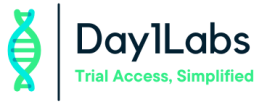The landscape of health insurance is becoming increasingly complex with the advent of genomic medicine. As we step into an era where personalized medicine based on one's genetic information is no longer futuristic, understanding how this intersects with health insurance marketplace options is crucial. This guide aims to demystify the process, focusing on how genomic data influences the choices in the health insurance marketplace. By the end of this brief overview, you'll have a clearer understanding of how to navigate these waters, ensuring you make informed decisions that best suit your healthcare needs.
At the core of the health insurance marketplace is a plethora of options ranging from government-funded plans to private insurance. As of 2021, "over 12 million Americans have enrolled in marketplace health insurance plans," according to the Centers for Medicare & Medicaid Services (CMS). However, what many consumers do not realize is that not all plans are created equal, especially when it comes to genomic medicine. This aspect of healthcare, which involves testing an individual's genome to inform treatment and preventive strategies, is not uniformly covered across all policies.
When selecting a health insurance plan, it's crucial to ask about genomic testing coverage. This is because, as per a report by the National Human Genome Research Institute, "the cost of genomic sequencing has dropped from $100 million in 2001 to around $600 in 2020, making it more accessible but not necessarily more affordable if not covered by insurance." This reduction in cost has facilitated a surge in the availability of tests, yet the inclusion in health insurance plans remains inconsistent. Therefore, it's vital to scrutinize the details of what each plan offers regarding genetic testing and personalized medicine.
Why does this matter? In an age where preventive medicine is increasingly recognized for its role in maintaining long-term health, genomic information can be a powerful tool. For instance, knowing one's susceptibility to certain conditions can inform more targeted and effective preventive measures. "Approximately 10% of adults who undergo genomic sequencing discover they have a genetic variant that could significantly impact their medication management or disease prevention strategies," claims a study published in JAMA. Without coverage for these tests, individuals may miss out on crucial health interventions.
Looking ahead, the trend towards integrating genomic data into routine healthcare is only expected to grow. This means that choosing a health insurance plan without considering its stance on genomic medicine could result in unforeseen out-of-pocket expenses or a lack of access to potentially life-saving information. As such, consumers are encouraged to research, compare, and direct questions to insurance providers about their policies on genetic testing and personalized medicine. Making an informed choice now can help ensure that your health insurance plan is as forward-thinking as the medical treatments it aims to cover.
In conclusion, the integration of genomic data into healthcare is reshaping how we approach health insurance. With significant variation in coverage across different plans and a clear trajectory towards more personalized healthcare, understanding and selecting the right insurance coverage has never been more important. By prioritizing plans that acknowledge and cover advancements in genomic medicine, you can ensure that your health insurance works not just for the healthcare of today, but also for the innovations of tomorrow.

